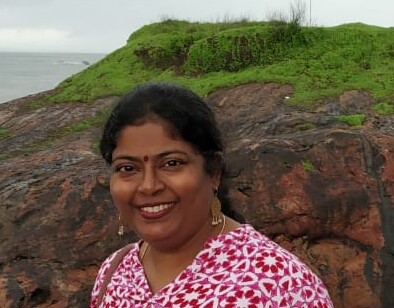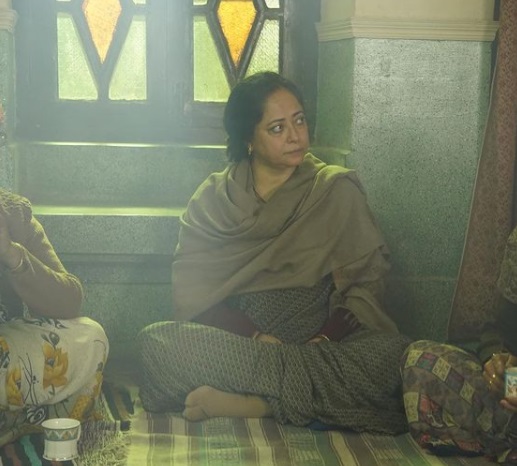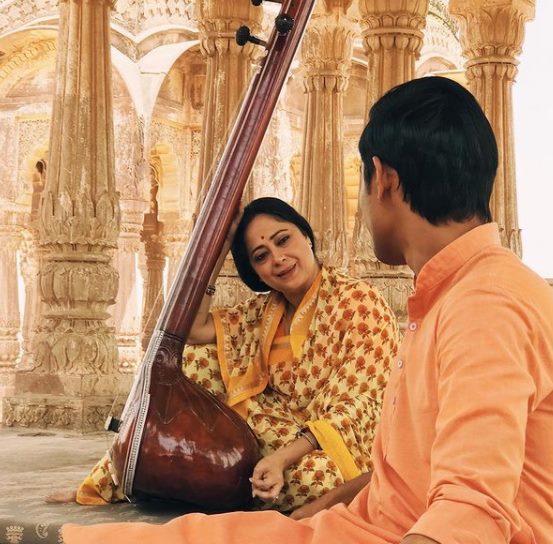Chulhe ki roti, temper talk and the lure of theatre: Sheeba Chadha
In The Slow Cafe with Neelesh Misra, actor Sheeba Chadha speaks about growing up in Delhi, making a new city her own, returning to one’s roots, and more.

It’s not often that a guest at Neelesh Misra’s The Slow Cafe speaks in-depth about an area of their personality that’s not very complementary. Sheeba Chadha, quite like the roles she chooses to essay on screen, did just that, speaking at length about her anger issues.
“I’m a very opinionated person,” said Chadha, to which Misra asked what could get her angry. “I could get angry you’re asking me this question,” laughed Chadha.
Also Read: I am getting to know my mother, even more so, after her demise: Ali Fazal
The actor, known for her work on stage and screen, then spoke about how sabr (patience) signifies true evolution. “We realise that the time is not right now, hold on, do it some other time,” said Chadha. “Temper is powerful. It hurts you and everyone else. Sometimes, people enter your life and teach you how to rein it in.”
The actor, who rose to prominence on screen as the crabby aunt in Sanjay Leela Bhansali’s Hum Dil De Chuke Sanam, initially grew up in Saharanpur, Uttar Pradesh, before becoming a Delhi girl, and then a Mumbai resident. “It’s almost like one’s memory is frozen,” remarked Chadha.

Is this some sort of romanticism, asked Misra, because the Lucknow in my mind is not the Lucknow of today. “I think we engage with all these places like a voyeuristic outsider. They are all nostalgic milestones. The tikki in one eatery, another dish in another… It’s almost like we come like buyers. Even Mumbai is not home,” Chadha said.
Delhi, she said, felt very different from what it did 30 years ago. “It’s like a lifetime, so many changes. It seems far away, covered in fog, and you’re not able to access the city of your childhood. Your response to it is still sharp, but you can’t access it,” said Chaddha, who remembers riding pillion on the scooter, Mandi House, parathas, rehearsals and more.
Life in a big city
Living in a big city like Mumbai calls for a different beat. “We also breathe fast. The big city absorbs you,” said Chadha, who initially looked for a house with cross windows and a tree outside. “It was beyond my budget, but it was very important for me to see a tree outside the house. That reminded me of home,” she added.
Chadha spoke about the wizened old trees of Delhi — the gulmohars, amaltas… the green carpet that was present across the city, especially in New Rajinder Nagar, where she grew up, and the speciality of the cusp weather —- the transition from summer to winter and winter to summer again.
Growing up in a home with two working parents and an elder sibling, who Chadha referred to as Bachpan ka Zevar (the jewels of childhood), Chadha grew up without really watching any theatre. Till she watched a play at Shri Ram Centre for Performing Arts, and felt some explosion within. “It was an instant connect, and I was willing to go the extra mile to find out how I could be a part of it,” she recalled.

“Theatre has the best of everything,” said Chadha. “It is overwhelming, an artist is completely immersed in a role.”
How does one remain relevant in Mumbai, asked Misra. “The desire to do good work helps. If there’s no work, there’s no real reason to stay here,” said Chadha, who has always liked to avoid over-working. “I have never wanted to work through the month. In my television days, I had to fight to stop at eighteen days. I love that irregular life,” she said.
Chadha likes gaps between projects — they help her regroup. And the pandemic and Zoom calls have left her wondering that it is possible to work in Mumbai without really living there. “The meetings, the long drives in traffic, the petrol…if you’re not greedy, you can live anywhere else too. It’s about what you bring to the table,” said Chadha.

Also Read: Some songs change our life. Some of our songs change others’ lives: Swanand Kirkire
The actress is honest to a fault. “With time, the desire to work will lessen. It will be nice to do a film here, a web-series there,” she pointed out.
The conversation went back to living outside of Mumbai, and Misra spoke about life at Slow, the village home he lives in near Lucknow. “Do you have chulhe ki roti,” asked Chadha. Seeing Misra’s nod and reply that the vegetables were home-grown too, there was a knowing look on Chadha’s face.
For all you know, there could be a Slow Interview soon, with all the usual characters — the birds, goats and cows, plentiful silence and meaningful pauses.

